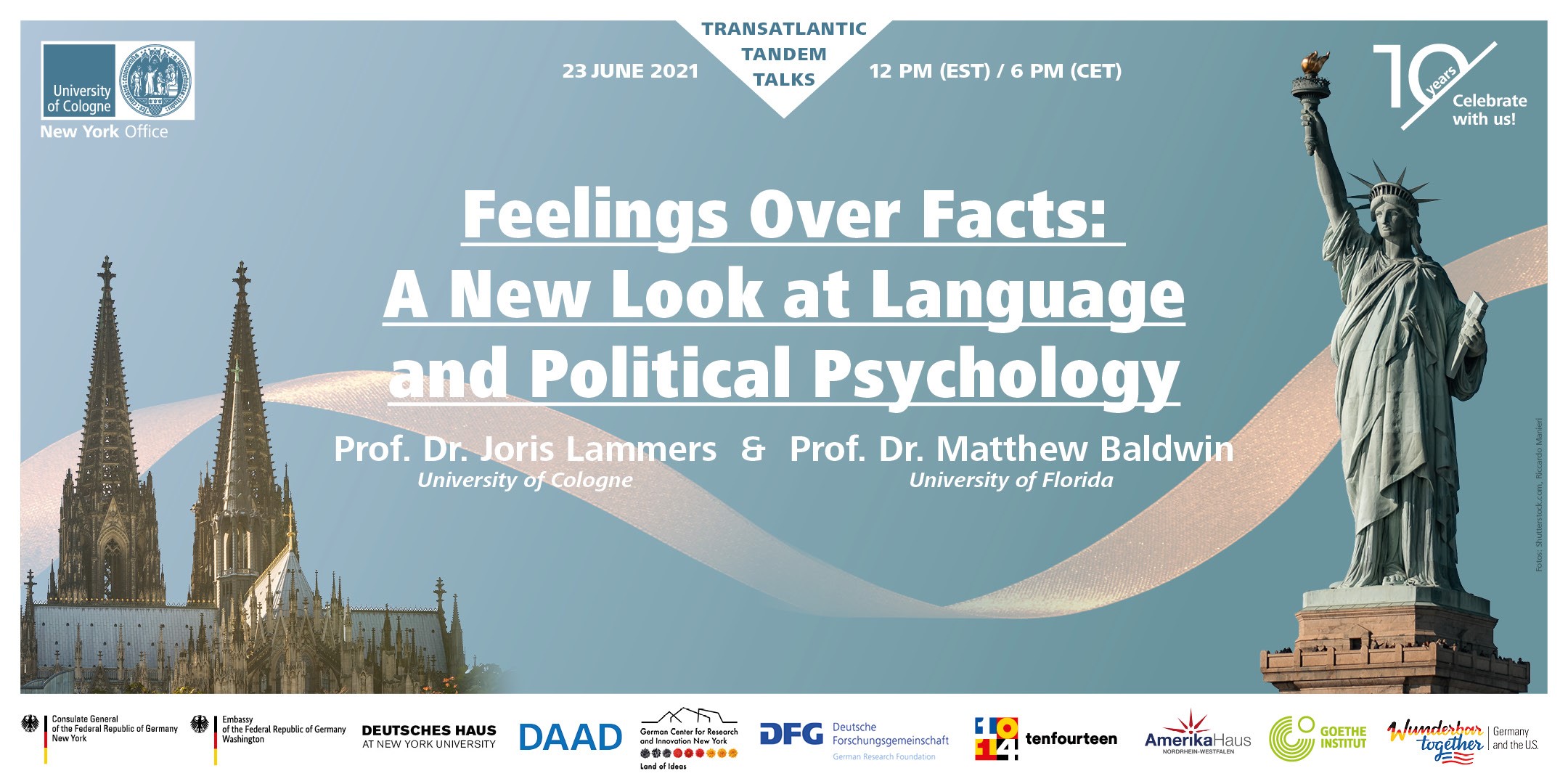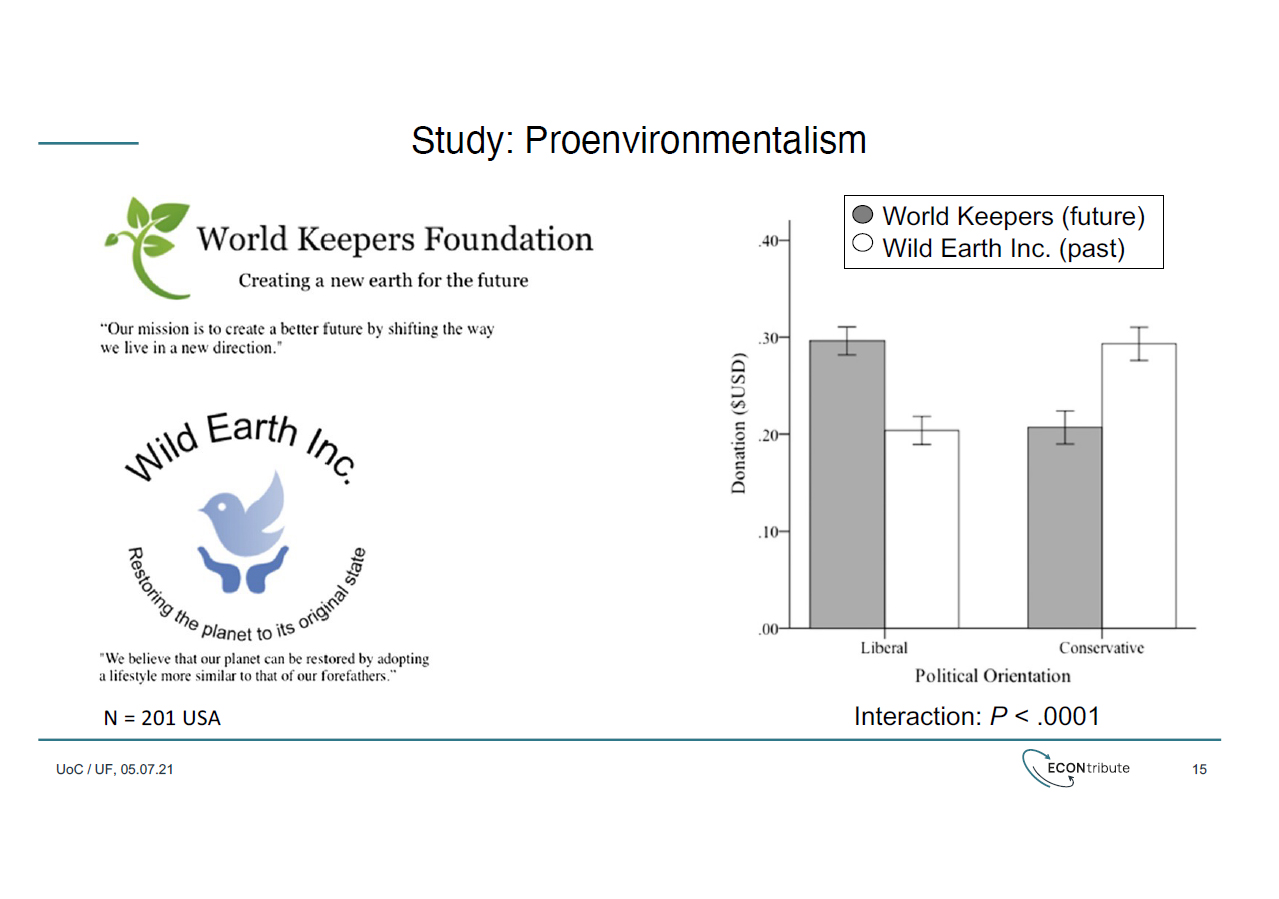Feelings Over Facts: A New Look At Language and Political Psychology

Transatlantic Tandem Talk Logo
© Universität Köln
(06/28/21) The panel discussion series “Transatlantic Tandem Talks” (TTT), organized by the University of Cologne’s New York office, held its latest event, “Feelings over Facts: A New Look at Language and Political Psychology,” on June 23. Joris Lammers of the DFG-funded Cluster of Excellence “ECONtribute” and Matt Baldwin of the University of Florida discussed aspects of the realization – applicable in both politics and advertising – that people are guided by their gut instinct more often than proponents of rational thinking might believe. The TTT series marks the tenth anniversary of the establishment of the University of Cologne’s North American office in New York.
At the beginning of the talk, organized jointly with the DFG Office North America and the German Center for Research and Innovation (DWIH) in New York, Lammers and Baldwin presented findings from studies jointly evaluated in Cologne that indicate a striking correlation between political attitudes in the USA and the intensity of nostalgia as a sentiment. The U.S. map of political orientation (conservative vs. liberal) was remarkably well-matched with another map that was created based on an analysis of Google search queries, where the key criterion was whether the person seeking information was focusing more on information relating to the past or the future. The assumed conclusion from this was that nostalgia as a sentiment determines thinking more strongly among conservatives than among progressives – rather than the notion that it was possible to package progressive ideas in a way that embraced “the good old days” to make them palatable to conservatives.

Political conservatives donate less to environment-friendly charities that aim to “create a better future” (forward-looking), and more to charities that aim to restore the lifestyle of “our forefathers” (past-oriented)
© ECONtribute Markets and Public Policy
The very first case study was surprising: when the liberal call for greater control of firearms in the USA was reformulated to express the idea that in the good old days, only the military had rapid-fire rifles at its disposal, the otherwise conspicuous divide on this issue between Democrats and Republicans almost disappeared. Another unexpected example that arose in the course of the lively debate was when the desire for greater diversity in US society – normally associated with liberal beliefs – was presented based on a nostalgic element. When this liberal idea was underpinned with a cover from the Superman comic book series dating back to the late 1940s, on which the hero promotes diversity as a quintessentially American quality, the gap between liberals and conservatives on this issue shrank by a stunning 83%.
In sum, the two speakers recommended that in the interest of productive political debate in the future, it would make sense to do more to tap into emotion as a means of overcoming the deep rifts that currently exist – and not only in the USA. The aim should be to appeal more to the values of the other side and to respect and discuss the other person’s subjective experience, as well as the feelings associated with it. With more than 180 participants and a stimulating Q and A, the event showed that less than six months after the new US administration took office, the organizers and speakers had clearly touched a contemporary nerve.